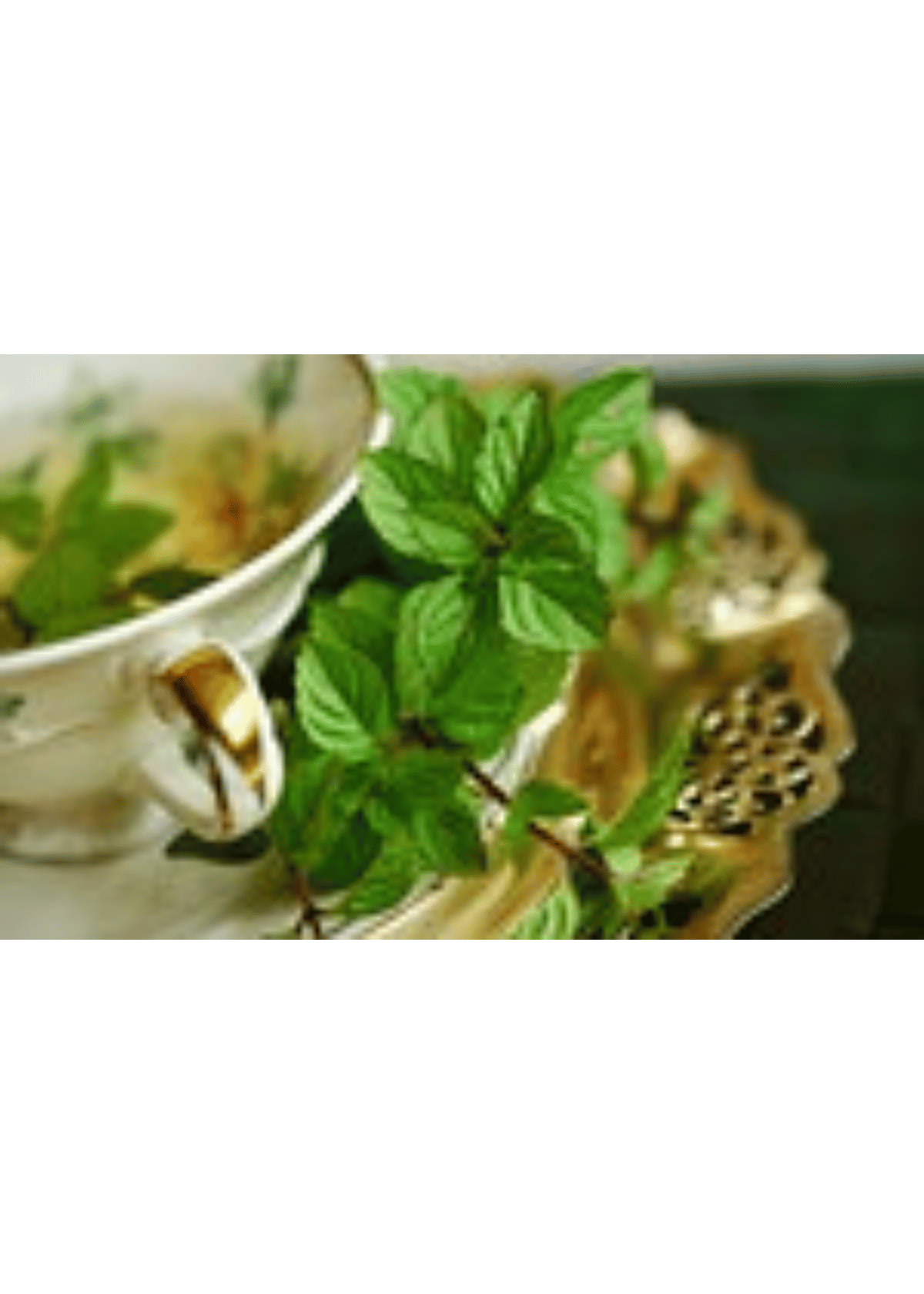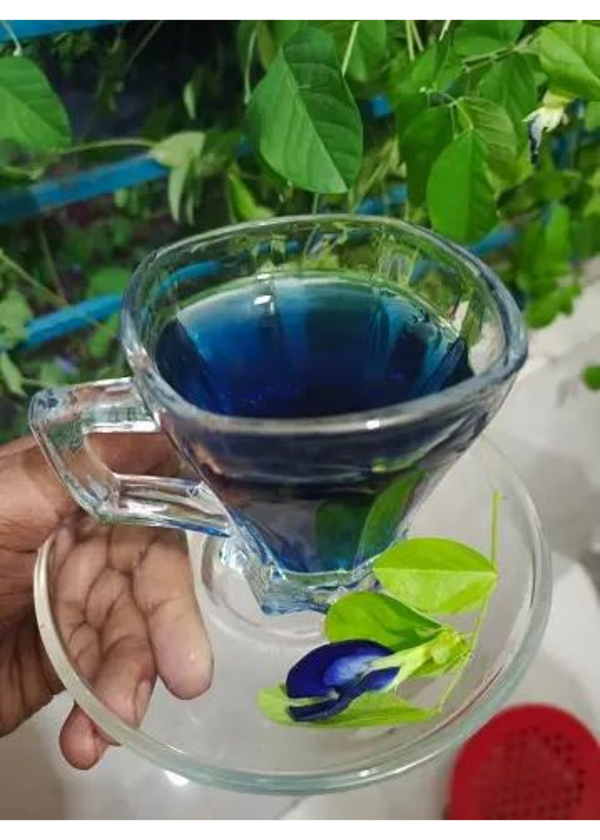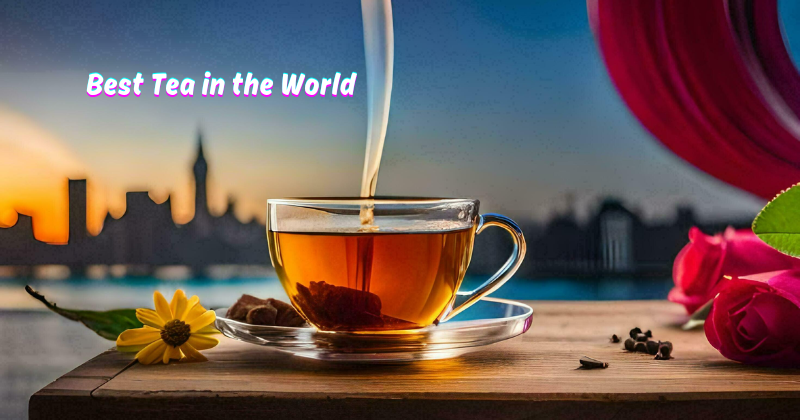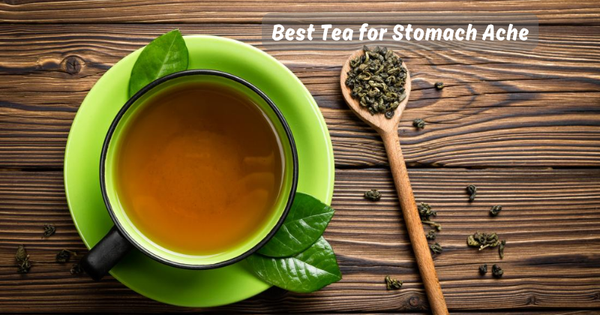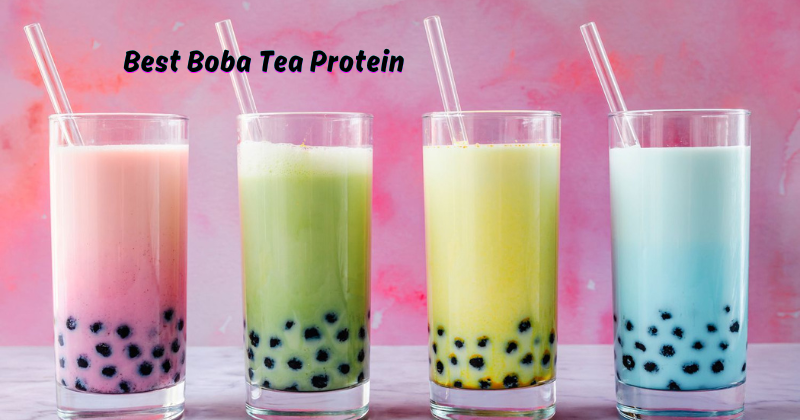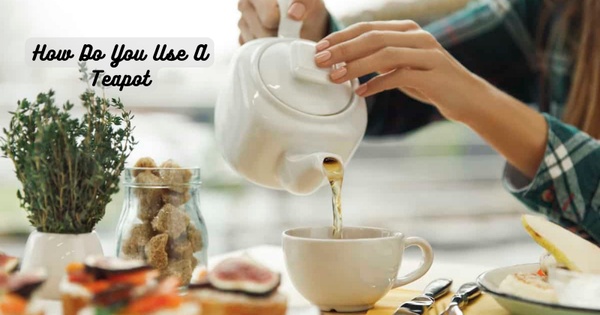Are you struggling with headaches? Need fast relief?
If you're looking for a natural remedy, tea may be the answer. This incredible drink has been celebrated for its many health benefits, including relieving headaches of all kinds.
We're here to unlock the power of headache-relief teas and show you which ones provide sweet relief from your pain.
Learn about various types of tea that aid in soothing tension, migraine, and sinus headache discomfort so you can rest easy without worrying about ongoing pain disrupting your day.
Read this article now to decide which type of tea best suits your unique needs! It's time to brew up some severe relief today!
Our Selection Criteria
Headaches can be severe pain, interrupting your day and making it difficult to focus and be productive.
You've probably tried various remedies to relieve headaches, but finding the right one can be frustrating and time-consuming. And let's face it, nobody wants to spend hours reading countless reviews to find the best teas for headaches.
That's why we've done the legwork for you. Our team of experts has sifted through hundreds of Amazon reviews to find the best teas for headaches.
With our carefully curated selection, you can easily find and purchase the perfect tea that will soothe your headaches and help you feel better in no time. Say goodbye to the guessing game and hello to headache pain relievers!
Traditional Medicinals Organic Chamomile Tea
Reasons for Admiration
Traditional Medicinals Organic Chamomile herbal blend contains calming properties that make it a great choice before bedtime or after a stressful day. Its subtle aroma and gentle flavor make it pleasing and relaxing, giving you just what you need. Plus, it's certified organic, so you can trust that you consume only the highest-quality ingredients.
Regarding soothing headaches, chamomile tea may be just the thing for mild migraines. But it may not be effective for severe migraines – in this case, please consult your doctor.
Nevertheless, Traditional Medicinals Organic Chamomile Tea is ideal for those who want to take a break from their everyday hustle and bustle and relax with a cup of this delightful herbal tea.
Essential Insights
Finding relief from migraine headaches can be a constant struggle. But drinking a cup of chamomile herbal tea may be just your solution. This tea is known for its calming properties and has been reported to relieve tension headaches, allowing you to feel more relaxed and comfortable.
One of the reasons this tea is so effective is because of its gentle aroma. The chamomile scent is delicate and soothing, promoting a sense of tranquility and eliminating any stress that may be contributing to migraine pain.
With subtle floral undertones, chamomile tea's flavor is easy to drink and offers a range of health benefits.
Yogi Tea - Peppermint
Reasons for Admiration
Yogi Tea - Peppermint is a delightful cup of relaxation and relief. Not only is the aroma of this tea pleasing and refreshing, but it also has a bold flavor that's sure to give you a comforting boost with every sip.
If you're looking for a tea that relieves stress, this is for you! Peppermint tea has been proven to reduce stress and relax nerves, relieving headaches. It's the perfect beverage when you need a little R&R and some me-time to relax and rest.
Essential Insights
If you're one of the countless people who suffer from migraine headaches, you know severe pain can be unbearable. Fortunately, there's a natural solution that many people have found to be highly effective - peppermint tea.
Brewed from the leaves of the peppermint plant, this herbal tea is renowned for alleviating headaches caused by stress or tension. The tea's refreshing aroma and bold, minty flavor provide a soothing sensation that will help ease your migraine pain.
Peppermint tea is great for reducing migraine symptoms and provides many other health benefits, including aiding digestion and promoting relaxation.
Tazo Calm Chamomile Herbal Tea
Reasons for Admiration
Welcome to Tazo Calm Chamomile Herbal Tea, the perfect cup of calmness for the tea lover who wants to stay relaxed with the perfect blend of flavors. From the moment you open the box, you'll be surrounded by a mild, sweet aroma of chamomile that will quickly transport you to the beauty of a peaceful garden.
This herbal tea comprises calming chamomile sourced from certified preferred suppliers worldwide. This subtle yet soothing blend brings mild, woody, honey-like flavors for a balanced and refreshing experience.
Not to mention, it won't hit too hard on the taste buds. The taste may be too mild for some, but for the tea drinkers looking for a gentle, calming experience, this tea is a perfect fit for you.
Essential Insights
Have you been struggling with migraine headaches lately? If so, Tazo Calm Chamomile Herbal Tea might be just what you need to experience significant relief.
This tea has a calming effect that can help reduce stress-related headaches, which is always a plus in my book. Plus, the aroma of chamomile is so gentle and mellow that you can't help but feel relaxed as you sip it.
To brew a cup, simply steep one tea bag in boiling water for 4-6 minutes and adjust the brewing time to achieve the desired intensity.
Don't suffer from migraine pain any longer; try this excellent tea for headaches today and reap all its health benefits!
Traditional Medicinals Organic Ginger Tea

Anti-Inflammatory Boost to Your Daily Routine
Traditional Medicinals Organic Ginger Tea
Reasons for Admiration
Traditional Medicinals Organic Ginger Tea is crafted with an organically grown ginger root that will leave you feeling cozy and comforted. If you're looking for an anti-inflammatory boost to your daily routine, this is it!
It brings a pleasant and robust flavor, and its strong ginger taste will refresh you after every sip. Tea lovers rejoice - finally, traditional and organic flavors combined to create the perfect blend!
Essential Insights
Organic ginger tea could be your drink if you're struggling with migraine headaches. Not only is it a delicious way to enjoy ginger's warming, spicy taste, but it's also known to have some fantastic health benefits.
Thanks to ginger's anti-inflammatory properties, this tea could help relieve migraine pain caused by inflammation. Plus, the ginger aroma is refreshing and invigorating, and the flavor is soothing and revitalizing.
To get the most out of your brew, steep your tea bag in boiling water for 10-15 minutes.
Stash Tea Lavender Tulsi Herbal Tea
Reasons for Admiration
Hey there, tea enthusiasts! We've got a treat for you. Introducing Stash Tea's Lavender Tulsi Herbal Tea, a delightful infusion that will take you on a soothing journey of flavors and benefits.
Let's start with the reasons this tea is truly admirable. Firstly, it boasts incredible anti-inflammatory properties, meaning it can help soothe those everyday aches and pains. Isn't that amazing? Just imagine sipping on a cup of this goodness while giving your body extra love.
The flavor of our Lavender Tulsi Tea is robust and warming, making it the perfect companion for a cozy afternoon or a chilly winter's night. The aromatic notes of lavender create a sense of tranquility, while the well-balanced blend of tulsi leaves adds a refreshing twist to each sip. It's like a mini vacation in your teacup!
Remember, we aim to provide you with the finest blends, carefully crafted to satisfy even the most discerning taste buds. Stash Tea is here to elevate your tea-drinking experience, one sip at a time. So why wait?
Essential Insights
Have you ever heard of Tulsi herbal tea? It's a fascinating drink that has been used for centuries to promote relaxation and combat stress. But that's not all—this delicious tea has countless health benefits.
Users have reported relief from tension headaches after consuming it, which could make it the perfect tea for those who suffer from migraine pain. But what sets this tea apart is its delightful aroma and taste.
Brewed with a blend of lavender and tulsi, this tea provides a mild, floral, soothing, and relaxing taste. So, if you're looking for a tasty and healthy way to unwind, try Tulsi herbal tea!
Buyer's Guide:
Buyer's Guide: Top 5 Teas for Relieving Headaches
If you suffer from frequent headaches, finding a natural remedy can significantly improve your quality of life. Tea, with its soothing properties and potential health benefits, can be an excellent option.
This buyer's guide will highlight the top five teas specifically recommended for relieving headaches. We have analyzed each tea's ingredients, brewing instructions, potential health benefits, user reviews, and expert opinions.
We will also compare each tea's taste, aroma, and overall experience to help you make an informed decision. So, without further ado, let's dive into the world of tea!
1. Traditional Medicinals Organic Chamomile Tea:
Ingredients: Organic chamomile flowers.
Brewing Instructions: Pour 8 oz. of freshly boiled water over one tea bag and steep for 10-15 minutes.
Health Benefits: Chamomile is known for its calming and relaxing properties. It may help alleviate tension headaches and promote better sleep.
User Reviews: "This chamomile tea is incredibly soothing and has helped me manage my headaches effectively."
Expert Opinion: According to a study published in the Journal of Agricultural and Food Chemistry, chamomile tea exhibits anti-inflammatory effects that may relieve various headaches.
Best Time to Consume: Before bedtime or during times of high stress.
Considerations: Some individuals may have allergies to chamomile. Avoid consuming this tea if you're allergic to plants in the daisy family.
2. Yogi Tea - Peppermint:
Ingredients: Organic peppermint leaf, organic spearmint leaf, organic lemongrass, organic rosehip, and more.
Brewing Instructions: Bring water to boiling point and steep the tea bag for 7 minutes.
Health Benefits: Peppermint tea has long been used to alleviate migraines and tension headaches due to its muscle-relaxing properties.
User Reviews: "The refreshing minty flavor of this tea is invigorating and helps relieve my headaches."
Expert Opinion: A systematic review published in the International Journal of Clinical Practice found that peppermint oil, a key component of peppermint tea, may help reduce the frequency and intensity of tension headache symptoms.
Best Time to Consume: After a meal or during the day as a pick-me-up.
Considerations: Peppermint may cause heartburn or worsen gastroesophageal reflux disease (GERD) symptoms in some individuals. If you have GERD, consult your healthcare provider before consuming this tea.
3. Tazo Calm Chamomile Herbal Tea:
Ingredients: Chamomile flowers, hibiscus flowers, spearmint leaves, rose petals, and more.
Brewing Instructions: Bring fresh, filtered water to a boil and pour it over the tea bag. Steep for 4-5 minutes.
Health Benefits: The combination of chamomile, hibiscus, and spearmint creates a calming blend that may help reduce tension and alleviate headaches.
User Reviews: "This chamomile tea is such a soothing blend. It truly helps me unwind and provides relief from my headaches."
Expert Opinion: A study by researchers at the University of Maryland Medical Center suggested that chamomile may help relieve migraines by inhibiting inflammation and calming the nervous system.
Best Time to Consume: Whenever you feel stressed or anxious.
Considerations: If you have low blood pressure, consult your healthcare provider before consuming this tea, as hibiscus may have a slight blood pressure-lowering effect.
4. Traditional Medicinals Organic Ginger Tea:
Ingredients: Organic ginger rhizome.
Brewing Instructions: Pour 8 oz. of boiled water over one tea bag and steep for 10-15 minutes.
Health Benefits: Ginger has anti-inflammatory properties that may help alleviate headaches caused by inflammation and reduce nausea often associated with migraines.
User Reviews: "This is my go-to tea to reduce headache pain. It's spicy and comforting, and it truly works."
Expert Opinion: According to a study published in Phytotherapy Research, ginger extract showed promising results in reducing the severity and duration of migraines in participants.
Best Time to Consume: In the morning or during nausea-inducing headaches.
Considerations: Ginger may act as a blood thinner, so if you are taking anticoagulant medications, please consult your healthcare provider before consuming this tea.
5. Stash Tea Lavender Tulsi Herbal Tea:
Ingredients: Herbal blend (tulsi leaves, chamomile flowers, lavender flowers) and natural lavender flavor.
Brewing Instructions: Steep for 3-5 minutes in freshly boiled water.
Health Benefits: The combination of tulsi, chamomile, and lavender creates a relaxing infusion that may relieve tension headache symptoms and promote a sense of calmness.
User Reviews: "The blend of lavender and tulsi in this tea is delightful. It soothes my headaches and helps me unwind after a long day."
Expert Opinion: A study published in the Journal of Ethnopharmacology suggested that lavender has potential analgesic and anxiolytic effects, possibly contributing to headache pain relief.
Best Time to Consume: Before bed or when seeking tranquility.
Considerations: Lavender may cause drowsiness in some individuals. Avoid drinking this tea if you need to remain alert.
After analyzing the teas in our buyer's guide, we highly recommend Yogi Tea - Peppermint for its refreshing taste, muscle-relaxing properties, and positive user reviews. However, individual preferences may vary, so we encourage you to try different teas to find the one that brings the most relief and enjoyment.
Remember, while tea can provide natural headache pain relief, it's essential to consult your healthcare provider if you have frequent or severe headaches to determine the underlying causes and develop an appropriate treatment plan.
FAQ Guide: Best Tea for Headaches
1. Which types of tea are best for relieving headaches?
- Peppermint tea: Known for its soothing aroma, it is often recommended for relieving tension and headache pain.
- Ginger tea: With its anti-inflammatory properties, it is an excellent option for easing migraines and reducing nausea associated with headaches.
- Green tea: Rich in antioxidants, green tea may aid in reducing headaches caused by tension, inflammation, and oxidative stress.
- Chamomile tea: Known for its calming effects, it may relieve tension headache symptoms and promote better sleep, which can also help alleviate migraines.
2. What is the recommended brewing method for headache-relief tea?
- Follow the brewing instructions on the tea package to ensure the best flavor and maximum benefits.
- Generally, steep 1 teaspoon of dried tea leaves or 1 teabag in 8 ounces of hot water for 3-5 minutes.
- For ginger tea, boiling fresh ginger slices for 10-15 minutes produces a more potent infusion.
3. Is there scientific evidence to support the effectiveness of these teas for relieving headaches?
- While scientific studies are limited, some evidence suggests that herbal teas like Peppermint and Chamomile may help soothe headache pain.
- The anti-inflammatory properties of ginger have been shown to assist with migraine relief.
- Green tea's antioxidants have been associated with reducing headaches, but more research is needed to confirm its effectiveness.
4. How can I incorporate tea into my headache pain routine?
- Start drinking a cup of headache-relief tea when you feel a headache coming on.
- Consider sipping tea in a calm and quiet environment to maximize its relaxation benefits.
- Use tea as a substitute for caffeinated beverages that may trigger headaches.
5. Are there any side effects associated with these teas?
- Peppermint and ginger are safe, but some may experience mild irritation or heartburn.
- Chamomile tea is safe for most people, but those with allergies to plants in the daisy family should exercise caution.
- Green tea contains caffeine, so individuals sensitive to caffeine may need to limit their intake.
6. Are there any limitations or considerations when using tea for headache pain?
- Each person may respond differently to tea, so it may take some trial and error to find the suitable tea variety that suits you.
- Tea alone may not relieve inevitable headaches, such as migraines. In these cases, it is essential to consult a healthcare professional for appropriate treatment.
- Some headaches may be a symptom of an underlying medical condition. If you experience chronic or severe headaches, it is crucial to seek professional medical advice.
7. Can I combine different types of headache-relief tea?
- Yes, you can experiment with different combinations to find what works best for you. For example, a mix of ginger and peppermint tea could be incredibly effective.
8. Can I use tea bags, or is loose-leaf tea preferred?
- Both tea bags and loose-leaf tea can be used. However, using loose-leaf tea may provide a more flavorful and potent brew.
9. How often can I drink headache-relief tea?
- You can enjoy headache-relief tea whenever needed, but it is advisable to limit caffeine-containing teas like green tea to prevent potential side effects.
10. Can children and pregnant women consume headache-relief tea?
- It is recommended that children consume teas only under the supervision and guidance of a healthcare professional.
- Pregnant women should consult with a healthcare professional before consuming any herbal teas, including those used to relieve pain in the head.
Remember, while tea can relieve some headaches, it is not a substitute for professional medical advice. If you have persistent or severe headaches, consult with a healthcare professional to identify the best course of treatment for your specific condition.
Which Tea for Headache is the Best for You?
In conclusion, the best tea for headaches depends on what kind of symptoms you are feeling. If your headache is caused by stress, opting for a decaffeinated chamomile, lavender, or peppermint tea can help you find relief.
Green tea can help reduce inflammation and the severity of your headache. At the same time, ginger is beneficial in helping to get rid of a migraine but may also cause some nausea for those with sensitive stomachs.
Lastly, black tea contains theine, which can both provide relief from mild headaches and worsen them for those with caffeine sensitivities.
No matter which option you choose to try, it would help if you always talked to your doctor first before taking anything new. With these tips in mind, you now have all the knowledge needed to make an informed decision on which tea is suitable for tackling your headache woes.

